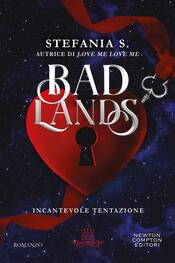

Sinossi
«Sto per terminare i Karamazov», scrive Dostoevskij il 16 agosto del 1880. «Quest'ultima parte, lo vedo e lo sento da me, è così originale e diversa da come scrivono gli altri, che non mi aspetto alcuna approvazione dalla critica. Il pubblico, i lettori sono un'altra storia: mi hanno sempre sostenuto». A un secolo e mezzo dalla sua comparsa, dapprima sulla rivista «Russkij vestnik» (Il messaggero russo) e poi in un'edizione in due volumi che andò esaurita nel giro di qualche settimana, questa scrittura diversa e originale, «madre della prosa moderna e che ha portato alla sua intensità attuale » (James Joyce), questi «vortici in ebollizione, turbinose tempeste di sabbia, getti d'acqua che sibilano e ribollono e ci risucchiano » dentro pagine composte «essenzialmente e completamente della materia di cui è fatta l'anima» (Virginia Woolf), questa «vetta della letteratura di ogni tempo » (Albert Einstein), questo «libro che può insegnarti tutto quello che serve sapere sulla vita» (Kurt Vonnegut), questo autore «che sovrasta con la sua statura le nostre letterature e la nostra storia» e che «oggi ancora ci aiuta a vivere e sperare» (Albert Camus), questa lettura «nevrotica » (Vladimir Nabokov) ma umanissima del cristianesimo, non ha perso nulla della sua potenza letteraria. E ancora oggi, mentre assistiamo al parricidio più famoso delle lettere moderne e ne seguiamo l'esaltante iter giudiziario, siamo costretti a scendere con Ivan, Dmitrij e Alësa Karamazov nelle profondità più scomode dell'animo umano, a interrogarci sugli istinti peggiori dell'individuo e della società, a incidere come un patologo le cancrene della nostra coscienza, in un percorso in cui realtà e incubo non sempre hanno contorni netti, in cui la tragedia si accompagna alla farsa, e la disperazione si danna per alimentare una pur esile fiammella di speranza. "I fratelli Karamazov" è il testamento letterario, e non solo, di Dostoevskij, il romanzo di chi guarda al sublime da una pozza di fango, delle idee che prendono fuoco, di coloro che «non respirano mai tranquillamente né mai si riposano (...), di chi vive nella febbre, nella convulsione, nello spasimo» (Stefan Zweig).
- ISBN: 8806249096
- Casa Editrice: Einaudi
- Pagine: 1080
- Data di uscita: 16-11-2021
Recensioni
If you like your books to move in a linear fashion this book is not for you. It hops around and attention must be paid or you will find yourself flipping back a few pages to reestablish the thread of the story. I took this on a plane flight, crazy right? Not exactly the normal "light" reading I
I'm writing this review as I read. Frankly, I'm astounded by how good this is and how compelling I'm finding it. Astounded? Why should that be? This is a classic, after all. True, but it breaks just about every "rule" of fiction. The plot so far is virtually nonexistent: three brothers get together
If there was still any doubt, let me confirm that this actually is the greatest book ever written. But be warned that you need to set aside a solid month to get through it. And it's not light reading--this is a dense work of philosophy disguised as a simple murder mystery. But it's well worth the ef Leggi tutto
The Brothers Karamazov is the greatest novel… The Brothers Karamazov is the greatest grotesque novel. And I’m afraid my interpretations of it will hardly be very popular. What is God? What is man? And what are their relationships? “You see, I close my eyes and think: if everyone has faith, where does Leggi tutto
"Reading Dostoevsky's The Brothers Karamazov is comparable to pushing a beautiful grand piano up a very steep hill." — Kevin Ansbro Why, oh why , in a world filled with endless opportunities to enjoy oneself, did I think it was a good idea to embark on a 19th-century book that's almost the size of an el Leggi tutto
In 1929 Freud wrote that The Brothers Karamazov was “the most magnificent novel ever written”. Well, it’s possible he had not got round to reading Ulysses yet (copies were hard to get until 1934) and of course he never did get the opportunity to read the work of Dan Brown or J K Rowling, but even so Leggi tutto
Contrary to widespread rumor, this is a far from bleak book. While every character has his or her own misery, and it all takes place in a place called something like "cattle-roundup-ville", the moments of religious ecstasy and moral clarity are heartbreaking in their frequency - it's hard not to wis Leggi tutto
It's not hard to understand Nabokov's objections to Dostoevsky. It's his scruffiness as a novelist Nabokov with his literary sartorial elegance would have objected to. For example, his gun-ho attitude towards unnecessary repetition. And also his occasional lapses at organising his material for maxim Leggi tutto
Citazioni
Al momento non ci sono citazioni, inserisci tu la prima!























